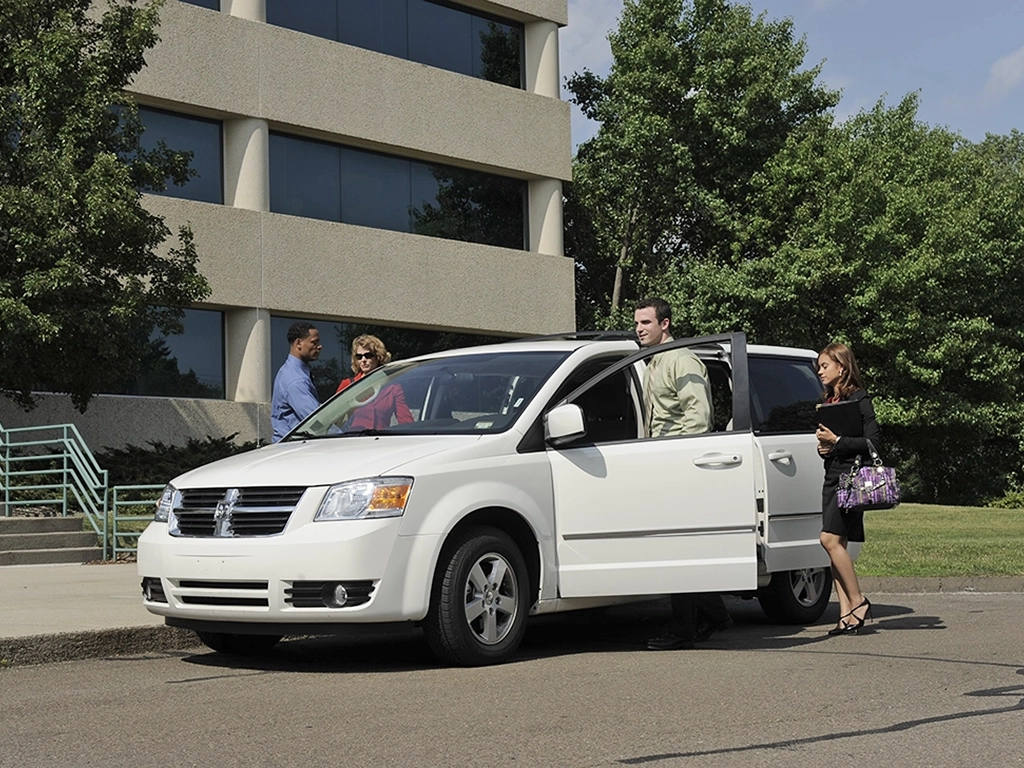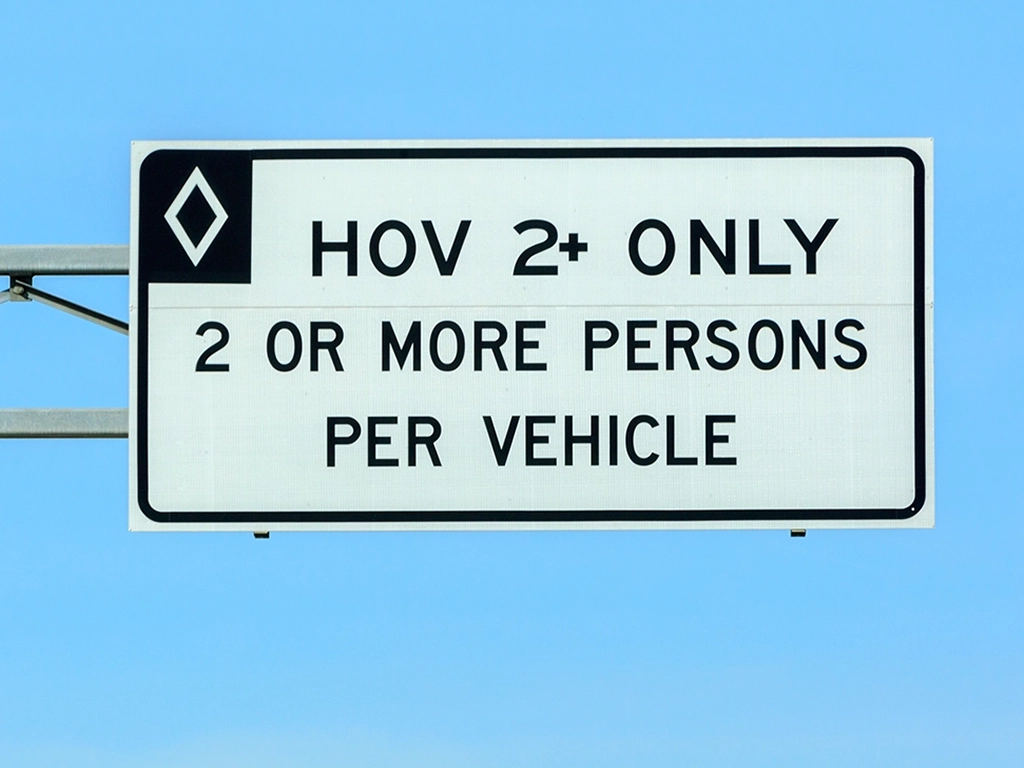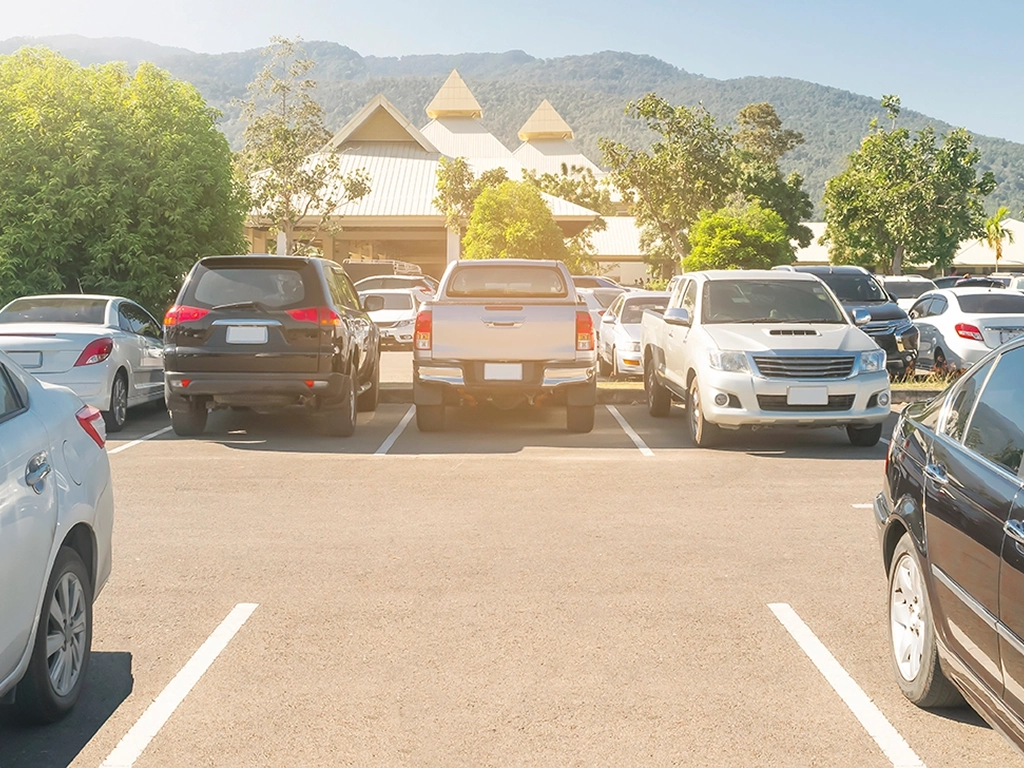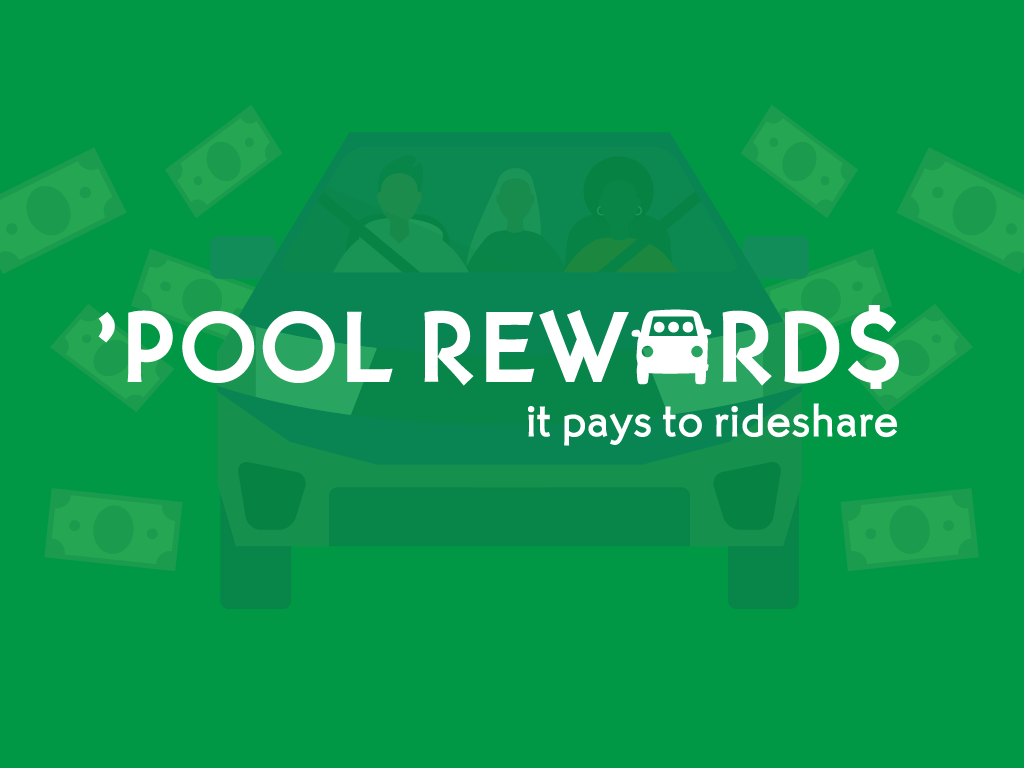Ridesharing means two or more persons traveling together in an automobile or van. Ridesharing benefits include fuel cost savings, wear and tear on roads, reducing traffic congestion, HOV lane access, overall expense saving by minimized driving, reduced pollution and greenhouse gas emissions. Ridesharing services enable commuters to find other individuals who share similar commute routes and work hours. Ridesharing promotes alternative ways for commuters to get to work such as:
Ridesharing
What is Ridesharing?

Carpooling
Carpooling is when two or more commuters ride together in a private automobile on a continuing basis, regardless of their relationship to each other or the cost of sharing agreements. Carpooling is the simplest and most common “ridesharing” arrangement.
Finding someone to carpool is easy because employees of a single company often live near each other. Neighbors may work at different companies located only a short distance apart and have the same work hours.
Arranging a Carpool
Carpools can be arranged in one of the following ways:
- One person may drive all the time, while the passengers contribute only to the cost (e.g., gas and parking).
- Participants may alternate driving and not exchange money.
- The carpool driver may pick up passengers at their homes, or they may meet at a central location.
- Carpools can and do include family members.
You get the picture. Collectively, the carpool participants make up the rules and schedule.
Advantages of Carpooling
Some of the overall advantages of carpooling include the following:
- Less stress commuting to and from work
- Financial savings due to sharing commuting costs (Calculate your savings)
- Reduces need for parking
- Increases free time for riders
- If an HOV lane is available, trips may take less time
- Reduces pollution due to auto emissions

Vanpooling
Vanpooling is an important and economical option for individuals commuting long distances. This option is popular in the Metropolitan Washington DC area because of long commuting distances to work sites. A company can give vanpoolers up to $340 in tax-free transportation benefits each month.
Type of Vanpools
There are three kinds of vanpool arrangements:
- Owner-operated vans
An individual leases or purchases a van and operates the van independently. Riders generally meet at a central location and pay the owner a set monthly fee. - Third-party vans
A vanpool “vendor” leases the vanpool vehicle for a monthly fee that includes the vehicle operating cost, insurance, and maintenance. The vendor can contract directly with one or more employees. The monthly lease fee is paid by the group of riders. - Employer-provided vans
The employer (or a group of employers) buys or leases vans for employees’ commute use. The employer organizes the vanpool riders and insures and maintains the vehicles. The employer may charge a fee to ride in the van or subsidize the service. Check with your company’s Human Resources department.
Advantages of Vanpooling
Some of the overall advantages of vanpooling include the following:
- Less stress commuting to and from work
- Financial savings due to shared commuting costs (Calculate your savings)
- Reduces need for parking
- Increases free time for riders
- If an HOV lane is available, trips may take less time
- Reduces pollution due to auto emissions
- Eligibility to receive up to $325 in tax-free transportation benefits from your employer
Ridesharing Resources
Ridesharing means two or more persons traveling together in an automobile or van. Ridesharing benefits include fuel cost savings, wear and tear on roads, reducing traffic congestion, HOV lane access, overall expense saving by minimized driving, reduced pollution and greenhouse gas emissions. Ridesharing services enable commuters to find other individuals who share similar commute routes and work hours. Ridesharing promotes alternative ways for commuters to get to work such as:

HOV/Express Lanes
HOV lanes are reserved for carpools, vanpools, buses, and motorcycles during designated time periods.

Park & Ride Lots in the Metropolitan Washington/Baltimore Regions
Designated lots where commuters can conveniently bike, walk or drive to and join up with carpools/vanpools or gain access to public transit.

